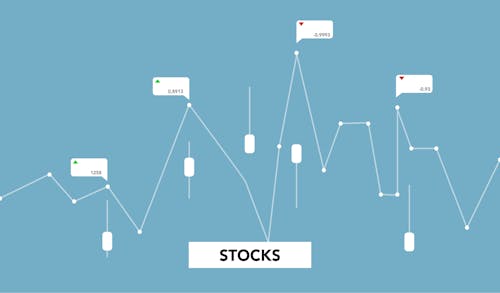
 Image Source: Pexels
Image Source: Pexels
On Wednesday, London’s FTSE 100 started off lower as investors remained cautious ahead of the Federal Reserve’s decision later in the day. This was further reinforced by softer-than-expected domestic inflation data, which solidified expectations of interest rate cuts from the Bank of England this year. The FTSE 100, composed of blue chip stocks, saw amodest 0.1% uptick heading into the close, with markets eagerly anticipating the Fed’s decision that could potentially set the tone for global central banks. On a positive note, Britain’s inflation rate for February was at 3.4%, slightly below economists’ expectations of 3.5%, as per a Reuters poll conducted before the Bank of England’s monetary policy update on Thursday. Following the release of this data, money markets have factored in approximately 70 basis points of rate cuts for this year, up from around 67 bps prior to the data release.On the positive side of the ledger Ashtead Group sits at the top of the table today gaining 4.6%, the company who operates in the industrial equipment hire sector and a constituent of the FTSE 100, has announced a 25% increase in revenue to $2.25bn (£1.84bn) for the three months ending in July, surpassing analysts’ expectations. The pre-tax profit for the quarter was $526.8m, up from $415.8m in the first quarter of fiscal 2022. When excluding exceptional and one-off items, the underlying pre-tax profit was $554.7m, compared to $436.5m in the previous year.On the negative side of the ledger Burberry, a luxury goods group in the UK, is facing difficulties after Kering, a French peer, issued a sales warning. Burberry’s shares have dropped by 4.8%, making it the top percentage loser in the FTSE 100 index. This decline comes as part of a broader trend of luxury stocks being affected by Kering’s announcement that its Q1 sales are expected to decrease by around 10%, primarily due to struggles with its popular brand Gucci. This news dashes hopes that Kering had managed to stabilise its sales declines. In January, Burberry had also cautioned about the challenging road ahead, attributing it to a worsening slowdown in the demand for luxury goods. As a result, the company’s shares have fallen by 13% year-to-date as of the most recent close. Prudential’s stock took a nosedive despite the insurance company expressing growing confidence in reaching its long-term goals after a strong 2023, which saw a nearly 50% increase in new business profits. Although the stock briefly showed positive movement at the market opening, it plummeted by almost 7% by midday to 728.6p, a level not seen since 2012. While the results were mostly as expected or even better, analysts attributed the negative market response to ongoing concerns about the company’s exposure to China’s struggling real estate sector, which is a key end-market for Prudential.
FTSE Bias: Bullish Above Bearish below 7700
 More By This Author:Daily Market Outlook – Wednesday, March 20The FTSE Finish Line: Reckitt Reverses Lower Again On Citi Downgrade, Unilever Up Cuts Costs Daily Market Outlook – Tuesday, March 19
More By This Author:Daily Market Outlook – Wednesday, March 20The FTSE Finish Line: Reckitt Reverses Lower Again On Citi Downgrade, Unilever Up Cuts Costs Daily Market Outlook – Tuesday, March 19
















